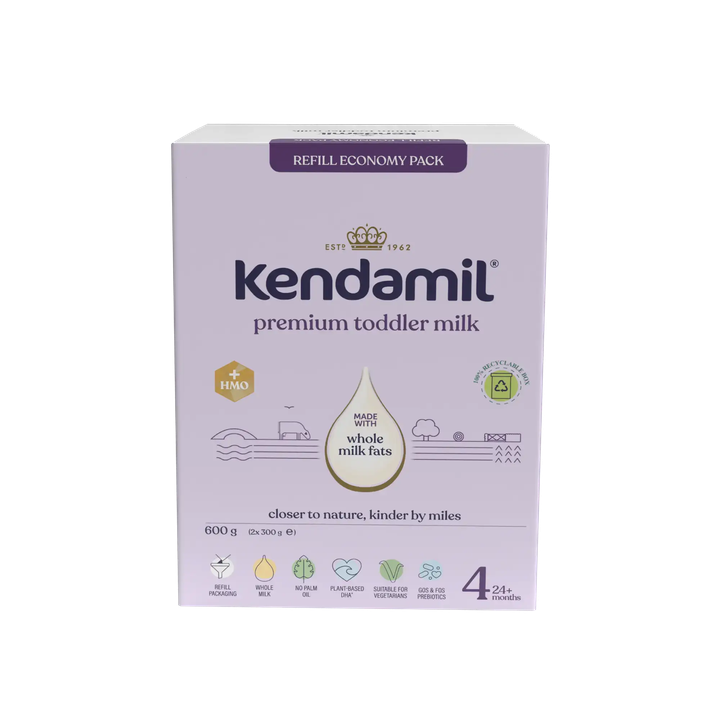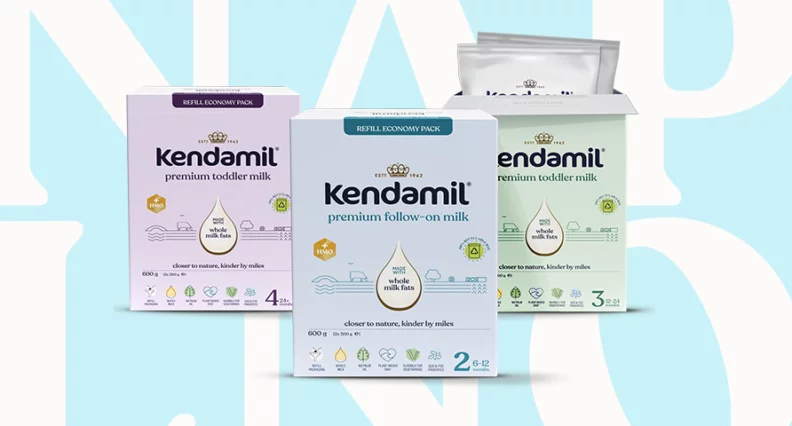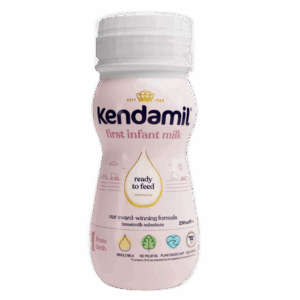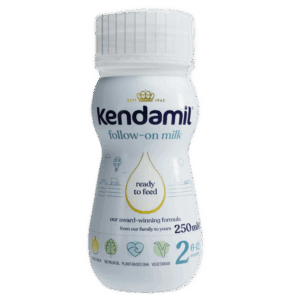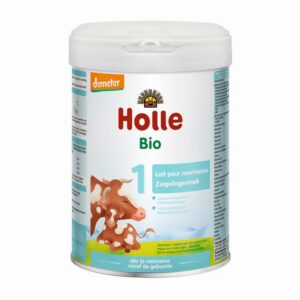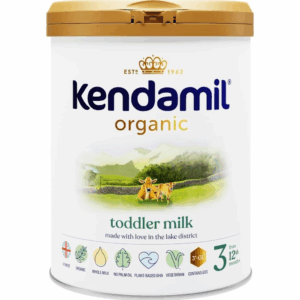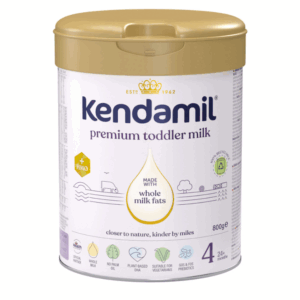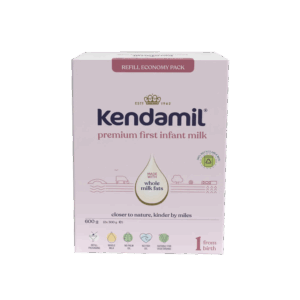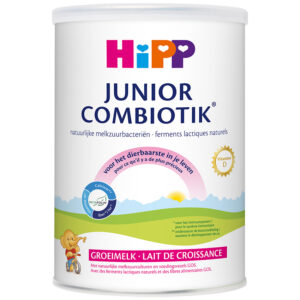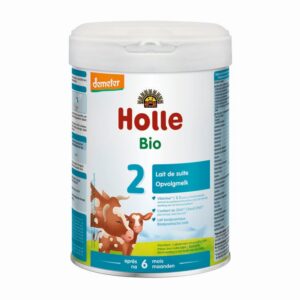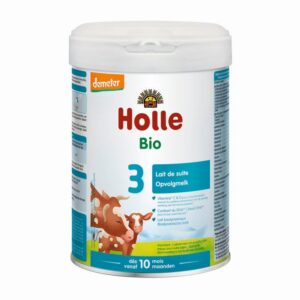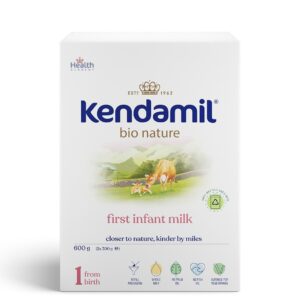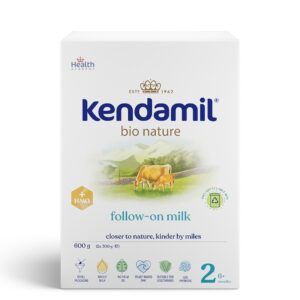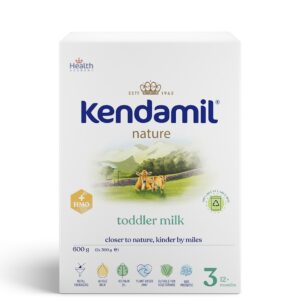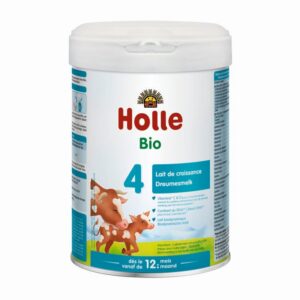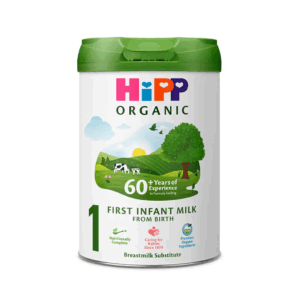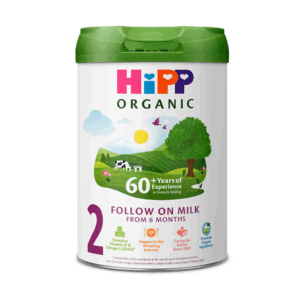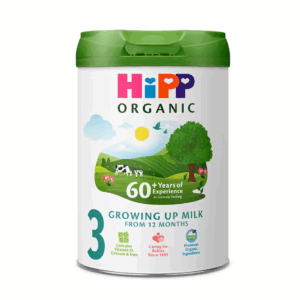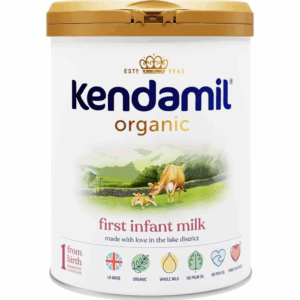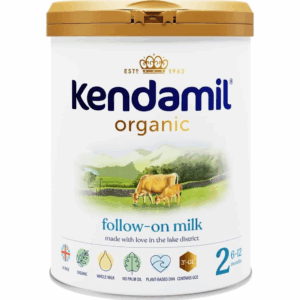Food intended for special nutrition.
1 Contains DHA (as required by law for all infant formula. DHA (or docosahexaenoic acid) is a long-chain polyunsaturated fatty acid that is an omega-3 fatty acid that is produced by microalgae and is also found in all animals that Omega 3 is one of the essential fatty acids that the body cannot produce on its own and is thus dependent on external intake (mostly through diet).
Important note: Breastfeeding is the best way to feed your baby. KENDAMIL PREMIUM 4 HMO+ is intended for the nutrition of young children from the 24th month onwards and should only form part of a mixed and balanced diet of a young child. When feeding from a bottle, avoid unnecessarily prolonging the contact of the teat with the teeth, thereby increasing the risk of tooth decay. Take care of your child’s oral hygiene, especially before going to bed. Follow the instructions for preparation, feeding and storage, otherwise you will endanger the health of the baby. Not intended for children under 12 months.
Store in a cool, dry place. Packaged in a protective atmosphere. Minimum shelf life until: see the bottom of the can. Use within 4 weeks after opening. Do not refrigerate or freeze.
Whole milk (173 g of liquid milk per 100 g of powder), lactose (from milk ), skimmed milk powder , vegetable oils (sunflower, coconut, rapeseed), galactooligosaccharides (from milk ) 2.2%, calcium phosphate, calcium lactate, potassium hydroxide , oil from microalgae Schizochytrium sp., oil from Mortierella alpina, sodium ascorbate, fructooligosaccharides 0.16%, calcium citrate, nucleotides (cytidine-5′-monophosphate, sodium salt of uridine-5′-monophosphate, adenosine-5′-monophosphate, sodium inosine-5′-monophosphate, sodium guanosine-5′-monophosphate), ferrous sulfate, vitamin E, zinc sulfate, niacin, calcium D-pantothenate, copper sulfate, vitamin A, thiamin, riboflavin, vitamin B6, folic acid , manganese sulfate, potassium iodide, vitamin K, sodium selenite, biotin, vitamin D3, vitamin B12, acidity regulator (citric acid).
Allergens are marked in bold. The composition refers to the dried state of the food.
Nutrition facts
|
per 100 g |
per 100 ml |
| Energy value |
kJ/kcal |
1974/471 |
270/65 |
| Fats |
G |
20.4 |
2.8 |
| – saturated fatty acids |
G |
9.3 |
1.3 |
| – polyunsaturated fatty acids |
G |
3 |
0.4 |
| Carbohydrates |
G |
58 |
8 |
| – of which sugars |
G |
54 |
7.5 |
| – of which lactose |
G |
53 |
7.3 |
| Fiber |
G |
1.65 |
0.23 |
| Protein (N x 6.25) |
G |
13 |
1.8 |
| Salt |
G |
0.35 |
0.06 |
| Vitamins |
| Vitamin A |
μg-RE |
449 |
62 (15%*) |
| Vitamin D3 |
µg |
5.4 |
0.7 (10%*) |
| Vitamin E |
mg-α-TE |
9.1 |
1.2 (24%*) |
| Vitamin K |
µg |
27.2 |
3.7 (31%*) |
| Vitamin C |
mg |
85.9 |
11.8 (26%*) |
| Thiamin |
mg |
0.5 |
0.07 (14%*) |
| Riboflavin |
mg |
0.9 |
0.12 (17%*) |
| Niacin |
mg |
5.1 |
0.7 (10%*) |
| Vitamin B6 |
mg |
0.3 |
0.04 |
| Folic acid |
µg |
101.4 |
14 (11%*) |
| Vitamin B12 |
µg |
0.7 |
0.1 (12%*) |
| Pantothenic acid |
mg |
3.3 |
0.45 (15%*) |
| Biotin |
µg |
13 |
1.8 (18%*) |
| Minerals |
| Sodium |
mg |
140 |
23.5 |
| Potassium |
mg |
764 |
106 (11%*) |
| Chloride |
mg |
369 |
51 (10%*) |
| Calcium |
mg |
880 |
121 (22%*) |
| Phosphorus |
mg |
478 |
66 (12%*) |
| Magnesium |
mg |
47 |
6.5 (8%*) |
| Iron |
mg |
6.3 |
0.9 (11%*) |
| Zinc |
mg |
3.6 |
0.5 (10%*) |
| Copper |
mg |
0.25 |
0.035 |
| Iodine |
µg |
79 |
11 (14%*) |
| Selenium |
µg |
18 |
2.5 (12%*) |
| Manganese |
µg |
61 |
8.5 |
| Other |
| GOS (galactooligosaccharides) |
G |
1.45 |
0.2 |
| FOS (fructooligosaccharides) |
G |
0.16 |
0.02 |
| 3’GL* |
G |
0.04 |
0.005 |
| L-carnitine |
mg |
6.9 |
0.9 |
| Nucleotides |
mg |
19.9 |
2.8 |
| Omega 3 |
| Sour. alpha linolenic (ALA) |
mg |
260 |
35.9 |
| Sour. docosahexaenoic acid (DHA) |
mg |
62 |
8.6 |
| Omega 6 |
| Sour. linoleic (LA) |
mg |
2601 |
359 |
| Sour. arachidonic acid (ARA) |
mg |
16 |
2.2 |
100 ml of prepared milk = 13.8 g of powder and 90 ml of water
* 3’GL (3’Galactosyllactose) = Oligosaccharide of breast milk, belonging to the HMO group naturally occurring in breast milk
Step 1: Wash hands, then sterilise your feeding utensils according to manufacturer’s instructions.
Step 2: Boil fresh water and let cool for 30 minutes before adding powder. Do not use artificially softened or repeatedly boiled water. Measure the required water into a sterilised bottle.
Step 3: Using the scoop provided, add the correct number of levelled scoops to the bottle. Use the straight edge inside the lid to level each scoop.
Step 4: Place on a sterilised cap and shake well to dissolve powder. Remove cap and replace with a sterilised teat.
Step 5: Cool to a natural body temperature. Always test the temperature of the liquid on your wrist prior to feeding your baby.
For feeding your baby, add 1 level scoop of powder to each 30 ml of water (freshly boiled and cooled). Please refer to the feeding guide shown on the can and note this table should only be used as a guide. All babies are different and may require more or less than is shown. Kendamil Organic First Infant Milk should be fed on demand. If you need more advice talk to your healthcare professional.
